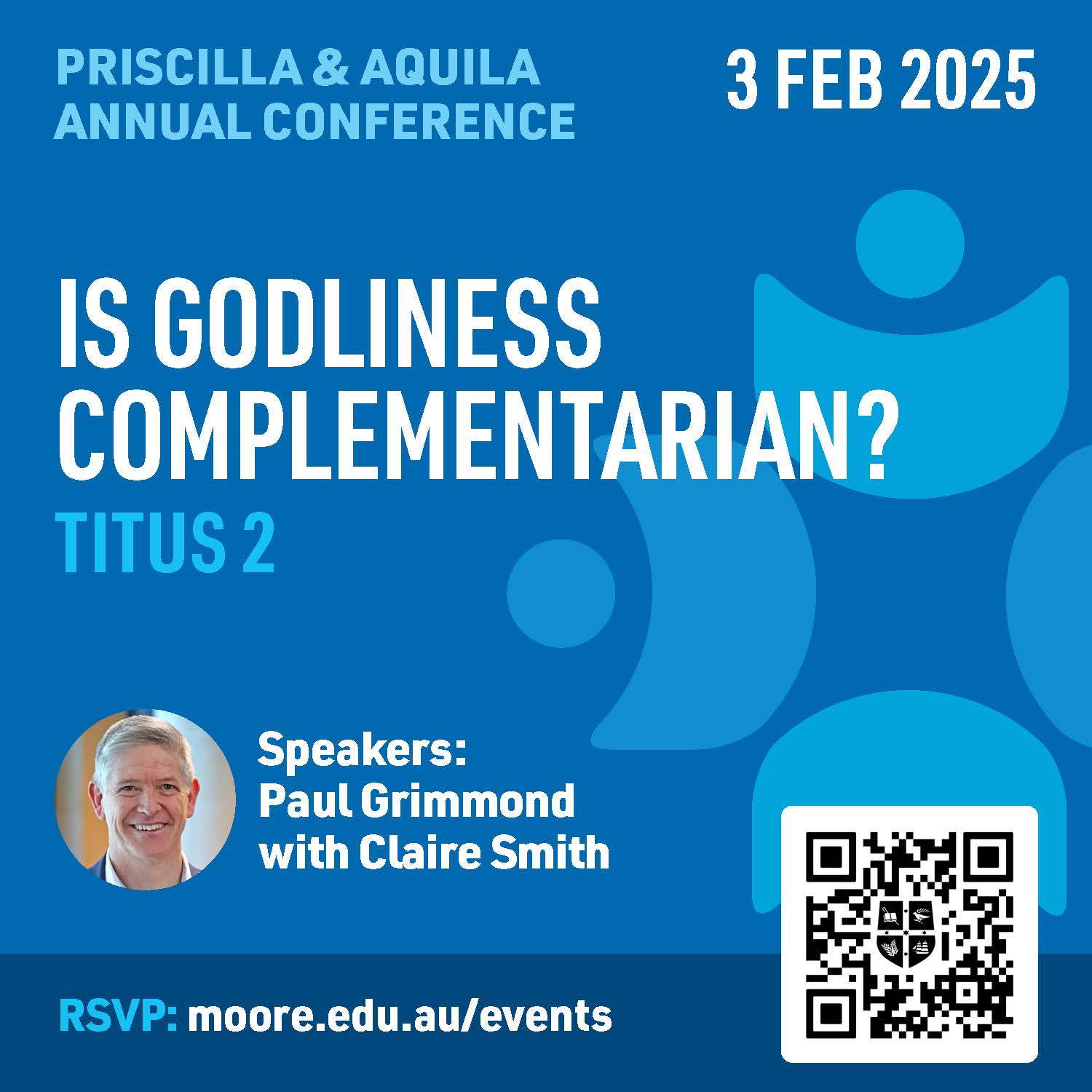In the mad rush to online church, many pastors are asking ourselves: “How can we make online church not just good but great? How can we make the online experience just as good as the personal experience?”
Now it’s perfectly understandable why we want to be at our best: we want to continue seeing the sinner saved and saints sanctified. And yet, that impulse to minimise the differences between the online and the personal might be unwise and short-sighted.
The impulse to minimise the differences between the online and the personal might be unwise … we may be shooting ourselves in the foot.
Just ask yourself: how will six months of nothing but online church reshape our doctrine of church? If we condition our flocks to a purely digital experience, will they see church differently and will it be for the better?
I worry that if we use technology “not wisely but too well”, we may be shooting ourselves in the foot. If we imply that there is no difference between church in person and online, we risk distorting our ecclesiology in two crucial ways.
1. We Risk Disembodying Church
Our inability to physically gather brings home a precious biblical truth: the church is fundamentally a spiritual reality.
We are not defined by structure or hierarchy, brick or mortar. We are united with Christ by his Spirit and it’s that same Spirit who unites us with one another (1 Cor 12:12–14). That spiritual bond is unbreakable. It transcends time and space; it unites believers across the world and throughout history.
And so, whether we gather physically or digitally, we are still and always the church—the blood-bought bride of Christ—a spiritual family before a physical gathering.
Gathering online allows us to celebrate the deep things we share and it reminds us that our unity is fundamentally spiritual.
We are not any less God’s people by not being able to physically meet.
And yet, while our unity is fundamentally spiritual, it is not merely spiritual. By converting church into a purely online experience, we may end up disembodying the church.
God did not create us as heads on sticks or souls in shells but as irreducibly physical beings—our bodies matter.
Indeed, the “mystery of godliness” which defines the church centres on Christ’s physical incarnation, resurrection and exaltation (1 Tim 3:16). Our physical gathering matters because a physical Christ physically died and rose to save a physical people.
The general resurrection shows us that the church at its most glorious will not be a disembodied spiritual connection but a tangible and physical communion (1 Thess 4:16–17).
We will physically enjoy then what we spiritually enjoy now—communion with God and all his saints. And on this side of eternity, the physical gathering of the local church is a foretaste of that future.
An experience of church that is purely and indefinitely online falls far short of that vision.
It disembodies the Christian life, disconnects the spiritual from the physical and detaches discipleship from everyday reality.
Paul calls on the Ephesian church to outwardly express their spiritual unity (Eph 4:1–3). And the exhortation in Hebrews to physically gather concretely expresses our spiritual entrance into the sanctuary through Jesus’ blood (Heb 10:19).
If we reduce church to a live-streamed sermon consumed at home and all alone, we may just present a God of our mind but not of our heart or will. We may give tacit approval to the nominal Christian who believes God in his head but does not obey him with his hands.
But when we regularly and physically gather as a church, we cannot so easily escape God’s claim over our whole lives.
Church is not the passive dislocated experience of a spectator but the active embodied belonging of a disciple.
2. We Risk Individualising Church
I recently read in an article, “If John could write letters to his churches, why can’t we live-stream sermons to ours?”
But John explicitly writes that he would much rather “come to you and talk face to face” (2 Jn 12; 3 Jn 14). While his physical absence doesn’t destroy their spiritual unity, it does in some way impair it.
It’s not for no reason that Paul and the Ephesian elders weep and grieve over never being able see each other again (Acts 20:37–38). And that’s why Paul not only writes letters to the churches but appoints elders in them as well.
For Paul, ongoing discipleship occurs in the ordinary life of a local church under the authority of godly men. That’s why he commands Timothy and Titus to appoint elders who won’t just teach but model godliness (1 Tim 3:1–7; Tit 1:5).
Imitation is intrinsic to discipleship.
Paul calls Timothy to “set an example for the believers” (1 Tim 4:12). Peter calls the elders to be “examples to the flock” (1 Pet 5:3). And the author of Hebrews calls believers to carefully observe their leaders and “imitate their faith” (Heb 13:7).
Some of my greatest discipleship moments take place not in the intentional but the accidental of church life.
I have grown as a Christian not just when I gather on Sundays or in small groups but when in the daily grind of life, I see a fellow Christian turn up, fight sin and trust Jesus. I grow when I observe and imitate the everyday faithfulness of other believers.
There’s no doubt that online church can deliver the preaching goods. But it simply cannot provide those accidental moments of discipleship—those moments worthy of imitation. How can we imitate the lives of brothers or sisters whom we never meet and do not truly know?
Online church risks reducing discipleship to the intentional and the individual. But it deprives us of life together in the family of God.
In Life Together, Dietrich Bonhoeffer writes:
“We must be ready to allow ourselves to be interrupted by God. God will be constantly crossing our paths and cancelling our plans by sending us people with claims and petitions.”
No matter how many people might join our online meeting, it is still an individualised experience that has little room for those divine interruptions. If we condition our churches to only meet online, we may just forfeit those accidental and indispensable moments of discipleship.
3. Longing to be Together
For the last fortnight, we have reminded our church that for all its benefits, online church is not God’s ideal—so don’t get used to it. We are intentionally not seeking to replicate our physical gatherings online. And when this virus passes, we will gladly shut down our live-streaming platform.
In the ordinary life of our church, we physically come forward every fortnight to participate in the Lord’s Supper.
We are intentionally not seeking to replicate our physical gatherings online. And when this virus passes, we will gladly shut down our live-streaming platform.
But in this season of solitude, we are intentionally foregoing that blessing. Because more than anything else, the sacraments are where the physical and spiritual worlds converge. It’s in the Supper that we celebrate the tangible benefits of the gospel not alone but together.
In temporarily foregoing this meal, we create a sense of longing for our spiritual and physical togetherness. And when this virus passes, our church will once again physically gather.
We will sing God’s praises together. We will hear his word together. We will witness five baptisms together. And we will share in the Supper together.
On that day, we will see, hear, taste and touch the goodness of God not alone but together. And as we do, we will whet our appetites for the physical world to come.















